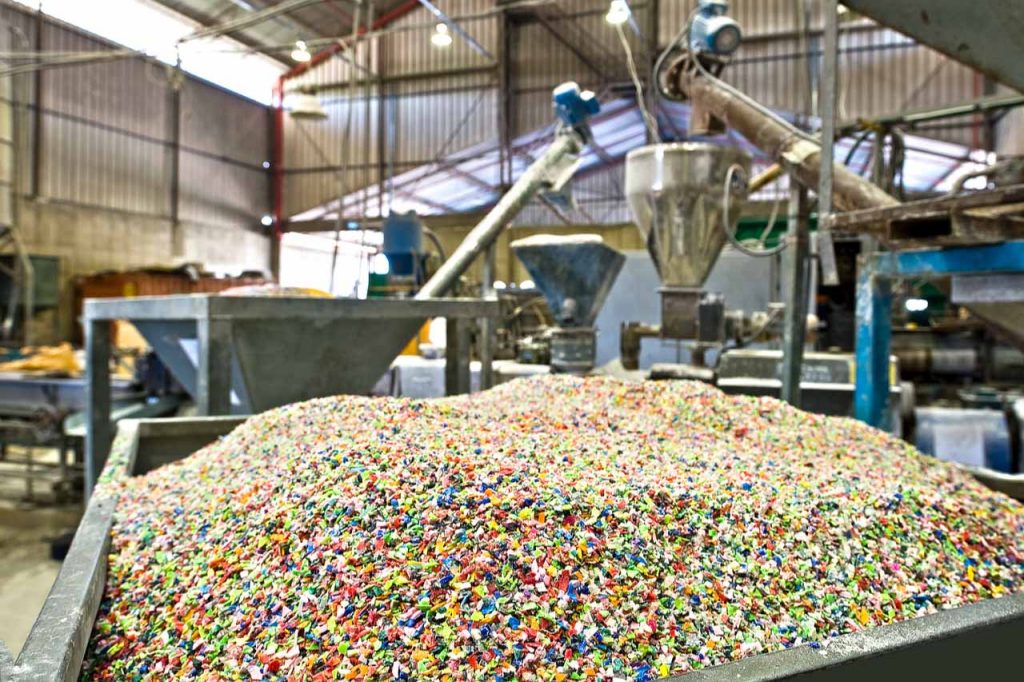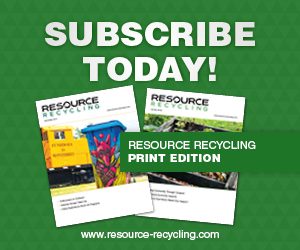
Officials estimate that 20 projects receiving grants will collectively divert nearly 44,000 tons of material from landfills each year. | ImagineStock/Shutterstock
North Carolina recently awarded hundreds of thousands of dollars in grants to help divert mixed recyclables, organics, paper, plastic and other materials from landfills.
The North Carolina Department of Environmental Quality (NC DEQ) provided nearly $666,000 in recycling business development grants to 20 companies.
“Recycling businesses are valuable contributors to North Carolina’s long-term economic development while working toward a cleaner, more sustainable environment,” Jamie Ragan, director of the Division of Environmental Assistance and Customer Service, stated in a press release. “The projects funded by these grants will create jobs and redirect recyclables back into the economy, thereby diverting materials from the waste stream.”
The following projects, organized by material handled, received funding.
C&D debris
- Carolina Concrete ($25,000): The company will purchase a permanent office building to expand the company’s client base for concrete recycling.
Mixed recyclables
- American Recycling ($60,000): The company will purchase a new baler to reduce costs and increase efficiency at its MRF.
- East Coast Consolidated ($30,000): The company will purchase a split-body truck and recycling containers to expand curbside recycling service.
- Simply Green Recycling ($30,000): The company will purchase a rear-loading compacting truck to collect residential and commercial recyclables more efficiently and expand service.
Organics
- Crown Town Compost ($32,130): The company will purchase a refrigerated walk-in trailer, curbside roll-out bins, a compost mixer and a compost sifter to expand the company’s organics recycling services.
- Gallins Family Farm ($24,500): The company will purchase a front-end loader to increase equipment capacity and processing productivity at its handling site for recycling food and organic waste.
- Ingram Woodyards ($15,000): The company will purchase an open-top chip van to expand the company’s wood debris recycling capacity.
Paper
- Cascades ($60,000): The company will purchase a detrasher and trommel system to separate debris from recyclable materials and improve efficiency for recycling mixed paper.
- Orange Recycling Services ($10,000): The company will purchase additional collection containers to expand the company’s cardboard collection service in the Triangle area.
Plastics
- AEIPLUS ($40,000): The company will purchase wash line equipment to clean contaminated agricultural plastics as part of the film recycling process.
- Bromley Plastics ($60,000): The company will purchase a plastic shredding system to increase capacity.
- Clear Path Recycling ($40,000): The company will purchase a system to reprocess material bound for landfill to recover greater amounts of recyclable plastic.
- High Cube ($25,000): The company will purchase a foam densifier to expand its post-commercial expanded polystyrene and polyethylene recycling services.
- Pelican Packaging ($40,000): The company will rebuild a plastic shredder and purchase both a horizontal baler and forklifts to expand the company’s industrial plastics recycling capacity.
- Plastic Materials ($60,000): The company will purchase a larger building to increase its ability to recycle film and rigid plastic scrap materials.
- RePolyTex ($30,000): The company will purchase molding equipment to manufacture plastic “plywood” sheets made from e-plastics and other mixed plastics.
- Resource Material Handling and Recycling ($12,000): The company will purchase a cyclone separation machine to improve the quality of regrind.
- Wellmark Plastics ($30,000): The company will purchase an optical sorter to separate and produce higher-value recycled resins.
Textiles
- Green Zone Recycling ($12,000): The company will purchase an automated baler and collection containers to assist in textile collection and recycling.
- Industrial Commons ($30,000): The company will purchase a conveyor and baler to more efficiently process textiles for recycling.
Grant recipients are required to invest at least a 50% cash match. The grant recipients plan to invest over $2 million of their own money.
Annually, the projects above are anticipated to divert from landfills 6,000 tons of concrete, 3,550 tons of mixed recyclables, 14,250 tons of food scraps and wood debris, 3,156 tons of mixed paper and cardboard, 15,387 tons of post-industrial and post-consumer plastic, and 1,223 tons of textiles, according to NC DEQ data.
A version of this story appeared in Plastics Recycling Update on May 6.
More stories about local programs
- Study links tagging tactics to lower contamination rates
- Interstate Waste buys North Atlantic in Connecticut
- Iowa firm recycles wind turbine blades into concrete



